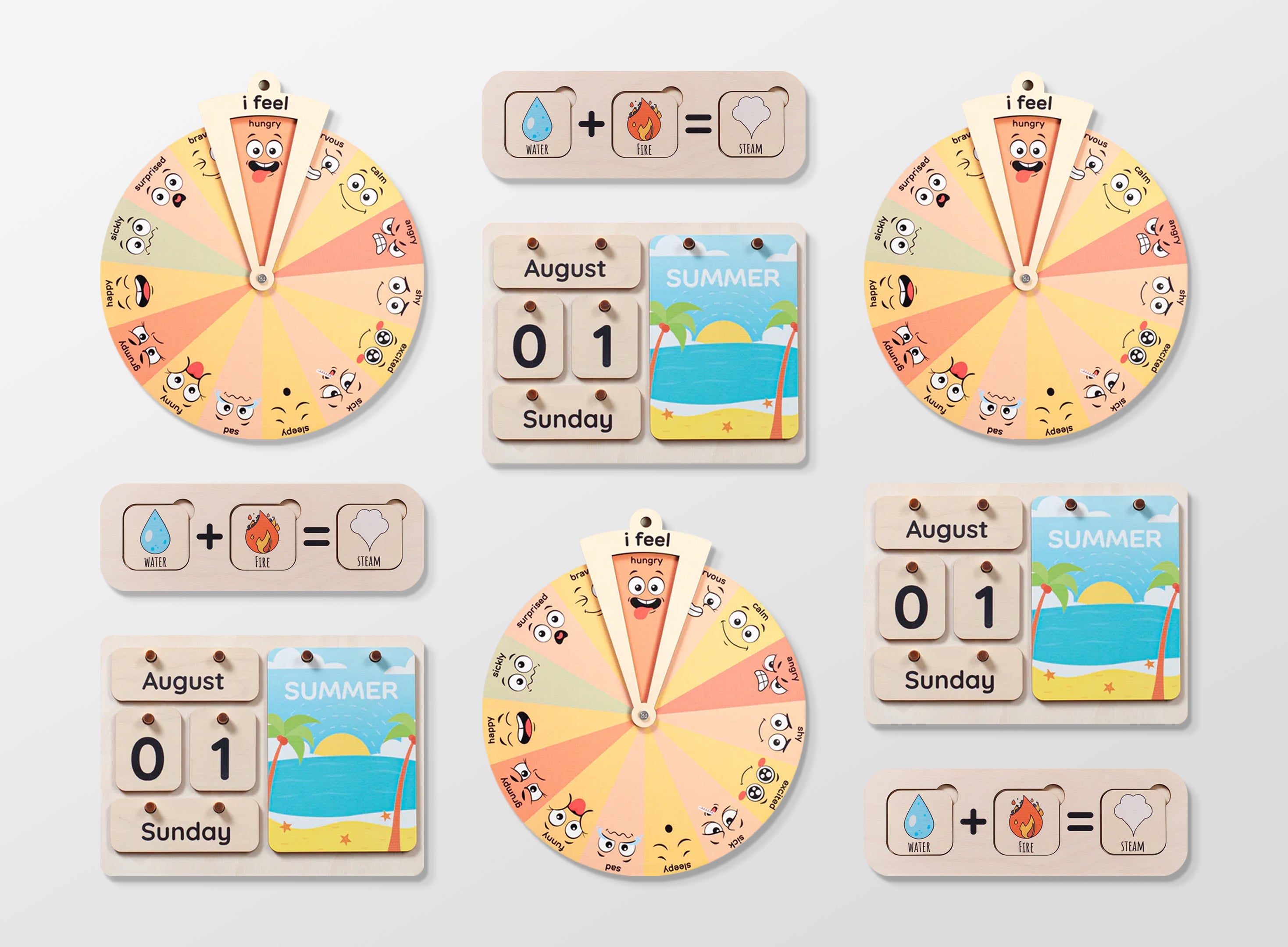Studies indicate that while playing, children act as researchers by exploring, experimenting, and imagining new possibilities. The Montessori method is based on the notion that the adults' role is not to supply their children with information but rather to provide an environment that encourages their natural desire to learn through play and independently explore the world.
Let’s dive into 8 ways that Montessori toys can nurture your child’s inner explorer:
According to a number of studies, playing with educational toys can assist children in developing their sensory and motor skills. Montessori toys can stimulate critical neural pathways that are crucial in the development of essential fine motor skills and determine your child to be physically active. These pathways are crucial in the development of crafts toys and activity-based activities as well as bright lights and sounds.
Montessori is also called "embodied education" since it encourages the use of multiple senses in the course of learning and play. Because of the tight relationship between motor and cognitive development, games that emphasize movement promote both. Check out our many-use wooden toys to see what we mean.
- Montessori toys promote intelligence and enhance problem-solving skills
Educational toys and activities that are modeled after Montessori's teachings have been shown to improve a child's intelligence and ability to solve problems in a variety of domains, including memory, coordination, and literacy levels. Puzzle games, for instance, force players to engage in critical thinking and have the potential to strengthen both reasoning and decision-making. A child who plays puzzle games on a regular basis will mature into an adult who is able to solve issues rapidly, even when they are under pressure.
- Montessori toys help kids learn how to handle their feelings
Children that are emotionally intelligent will be able to recognize, assess, maintain control over, and constructively communicate the range of feelings that they experience. Certain toys may put your child in a variety of circumstances, which will cause them to experience a broad spectrum of feelings. Your child will develop self-awareness, empathy, emotional control, and the ability to motivate themselves independently if you parent in a manner that is inspired by the Montessori method.
- Montessori toys foster emotional maturity
Even before your child is old enough to go to kindergarten, you can teach him or her to be friendly and to have good social skills right in your own home. Montessori toys put your child in social situations where he or she has to play a role, share, bond, care, be patient, and take the lead. Learning how to interact with other people is just as important as learning to walk, talk, and read. Promoting healthy relationships with peers is important for building a strong foundation for self-esteem, communication skills, and meaningful relationships.
- Montessori toys help kids focus better
Games that involve concentration on a task for an extended amount of time without removing the "fun" part can be used by parents to teach and develop their children's capacity to focus on anything for an extended period of time. Memory games, card games, and puzzles are all great ways to increase your child's attention and concentration, two abilities that will serve them well throughout their academic careers and into life.
- Montessori toys spark imagination and creativity
"Imagination is more essential than information," Einstein said. Montessori toys don't just help kids develop important skills; they also inspire them to be creative and teach them to think "beyond the box." Children gain a sense of mastery and self-assurance when they are able to actively participate in shaping their environment via imaginative play and creative expression.
- Montessori toys teach mathematical principles by focusing on spatial relationships
Although a spatial understanding is arguably more foundational to mathematics, numeracy is typically where school-aged children start when learning math. Predicting how well a young child will do in mathematics requires only looking at how well they do in spatial tasks, such as learning geometric figures.
- Montessori toys are prettier and use natural materials
Children are more likely to engage their imaginations and try new things when they play with objects from nature. Natural materials are more alluring since they pique the viewer's interest in learning more about their origins. Montessori toys can be produced from a wide variety of materials besides wood, including clay, glass, metal, rock, and textiles.

